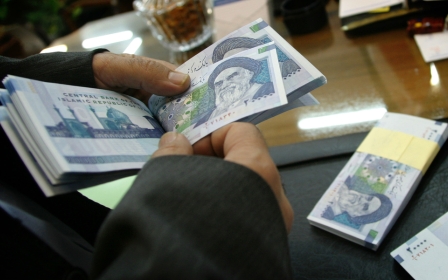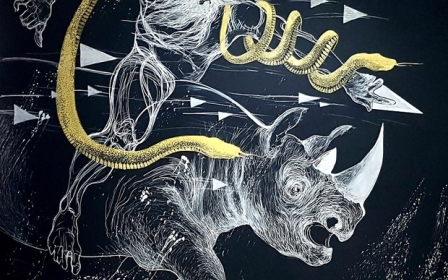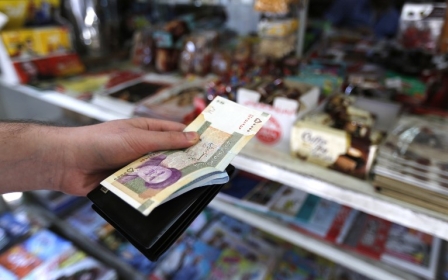Iran's Khamenei bans holding direct talks with United States
Iran's Supreme Leader Ayatollah Ali Khamenei banned holding any direct talks with the United States, state TV reported, rejecting an offer last month by US President Donald Trump for talks with no preconditions with Tehran.
"I ban holding any talks with America ... America never remains loyal to its promises in talks ... just gives empty words ... and never retreats from its goals for talks," Khamenei was quoted as saying by TV.
'With better management and planning, we can resist the sanctions and overcome them'
- Ayatollah Ali Khamenei
He also accused the Iranian government of economic mismanagement and said it needed to improve its performance to help the country better weather newly reimposed US sanctions.
Washington reimposed strict sanctions against Iran last Tuesday and Trump has threatened to penalise firms from other countries that continue to operate in the Islamic Republic. Iran has denounced the sanctions as "US unilateralism".
"More than the sanctions, economic mismanagement (by the government) is putting pressure on ordinary Iranians ... I do not call it betrayal but a huge mistake in management," Iranian state TV quoted Khamenei as saying, in his first reaction to the reimposition of US sanctions.
"With better management and planning we can resist the sanctions and overcome them," Khamenei said.
Iran's rial currency has lost about half of its value since April in anticipation of the renewed US sanctions, driven mainly by heavy demand for dollars among ordinary Iranians trying to protect their savings.
Iranian officials have blamed "enemies" for the fall of the currency and a rapid rise in the price of gold coins, and more than 60 people, including several officials, have been arrested on charges that carry the death penalty.
"The fall of the rial and the increase in gold coin prices are major economic problems... The corrupt people (officials) should be punished firmly," Khamenei said told a gathering attended by thousands of Iranians, state TV reported.
'Economic war'
Earlier, on Saturday, Khamenei called for "swift and just" legal action by new courts set up to tackle corruption after the head of the judiciary said Iran was facing an "economic war", Iranian media reported.
Fearing further economic hardship, thousands of Iranians in recent weeks have protested against the slump in the rial, sharp rises in the prices of some food items and state corruption.
As Middle East Eye reported last month, the govenrment's attempt to unify the dollar's official and black market exchange rates completely backfired.
Protests in cities and towns across Iran have often begun with slogans against the high cost of living, high prices and a lack of jobs, but have then quickly turned into anti-government rallies.
"When the economy starts to deteriorate, people come under much more pressure and it is clear that they will gradually lose their trust in government," economic journalist Farideh Enayeti told MEE.
Trump reimposed the sanctions after pulling the United States out of an international accord that aims to curb Iran's nuclear programme. He said the deal was not working and also has said Iran must stop meddling in conflicts in Syria and Yemen.
The sanctions prevent Iran from trading in gold and precious metals. They also ban purchases of US dollars by Iran and sanction its automotive sector.
Unless Iran's clerical rulers comply with the US demands, more sanctions targeting Iran's oil and shipping industries are set for November.
New MEE newsletter: Jerusalem Dispatch
Sign up to get the latest insights and analysis on Israel-Palestine, alongside Turkey Unpacked and other MEE newsletters
Middle East Eye delivers independent and unrivalled coverage and analysis of the Middle East, North Africa and beyond. To learn more about republishing this content and the associated fees, please fill out this form. More about MEE can be found here.




